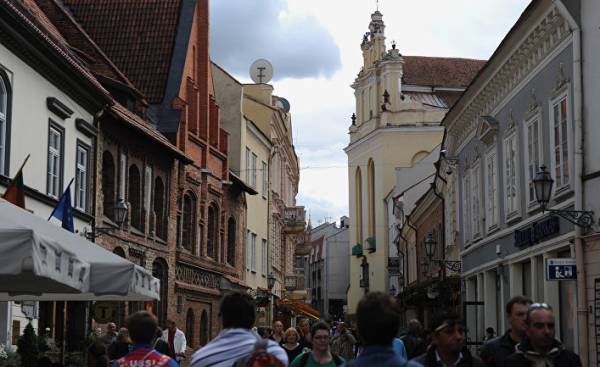
For Lithuanian employers have fallen on hard times, especially in search of seasonal workers. Despite the fact that offer a good salary, the experts acknowledge that it is difficult to compete with several times higher salaries abroad local employers difficult, and the reduction of unemployment in Lithuania hides a serious problem — employers not enough workers.
The President of the Lithuanian Association of Lithuanian employment agencies Thomas Bogdanski said that finding seasonal workers is longer than before. “In addition, people sensitive to wages. If they offer more, they just go away. There are more jobs, the opportunity to leave for a while to work abroad. This is evident in the Lithuanian market. Workers have more alternatives,” he said Bogdanski.
The analysis of the Lithuanian Confederation of Industrialists, showed that the unemployment rate in Lithuania has been steadily declining, but it hides a sad truth. It turned out that 70% of executives feel the lack of both skilled and unskilled labour. Eloquent and the Department of statistics data.
At the end of the first quarter of 2017 in Lithuania was 20 thousand 700 available jobs, it’s 27% more than at the same time a year ago. According to the labour exchange, in may in Lithuania has registered 2,800 seasonal jobs, most of them in the service sector: catering, hospitality industry, trade. However, according to BT, they offer a minimum salary or a salary slightly above the minimum.
President Nurinskoy Association business and tourism Irma Baltrusaitis said that the situation is not only seasonal, but also with all the workers in the last 5 years with each year getting harder. Mainly for seasonal work are students, but they don’t want to stay in Lithuania, despite the fact that there can earn as much or even more.
“Students are more likely to go to work in Norway, England, to communicate with foreigners, to improve the language. And earned there money here are almost indistinguishable, but for some reason people tend to leave,” said Baltrusaitis.
The question is, whether here it is possible to earn as much or more than abroad, Baltrusaitis said it all depends on how lucky someone abroad earns more, others get more in Lithuania. But she insisted that abroad need to work harder, longer, and heavier than in Lithuania.
According to Baltrusaitis, lacking all employees: waiters, cooks, maids. In addition, young people are not interested in the opportunity to gain work experience, the main thing for her — what salary will be paid.







